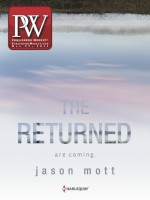Curtis Sittenfeld explores familial loyalty and dysfunction in Sisterland, a tale of Kate and Violet, identical twins with ESP.
What was your inspiration for writing about the paranormal?
The genesis for the novel was a conversation I had with a friend about a climatologist named Iben Browning who forecast that there would be an earthquake in St. Louis on or near a certain day in 1990. The quake didn’t happen, but Browning’s prediction caused a lot of nervousness in Missouri. I was intrigued by the possibilities for fiction. What if I told the story not from the point of view of the person making the prediction, but of someone close to that person? Obviously I changed almost everything, including changing the climatologist to a psychic. I didn’t make a conscious decision that I wanted to write about a psychic or about the paranormal. That evolved organically.
What kind of research did you do into psychics?
I used a New Age bookstore in the suburbs of St. Louis as a resource. I interviewed a psychic years ago, and I interviewed another in the course of writing the novel. And I read some magazines and Web sites. I started reading a book about how to cultivate your own psychic powers, but I never finished it.
You didn’t try to cultivate yours?
There are things I have in common with Kate, and others I don’t, and something we have in common is that I don’t consider it incredibly desirable to be psychic. Especially if you were in the middle ground where Kate is, not very confident of your abilities, and unsure of how much you should trust them.
Beyond offering a genetic explanation for the sisters’ shared gift, how important is it to the story that they’re twins?
Twins have a mystique about them. And I wanted to explore the experience of being one person, sharing a body, and then being separated. What transitions are there between being one and then being apart?
I enjoyed your portrayal of Kate’s friendship with Hank, who as a parent with a child slightly older than Kate’s daughter, becomes Kate’s mentor.
I think that’s a real phenomenon in the life of new parents—turning to someone more experienced. You can be a very competent adult and find yourself feeling clueless after you have a baby. I remember the first time my daughter threw up. I didn’t know what to do.
Despite having grown up with dysfunctional parents, Kate expects maternal instinct to be reliable. What’s your view?
I think it’s confusing. Hormones course through your system, you’re sleep-deprived, and everyone around you is telling you to trust your instincts. Which you know you should. But you also know that it’s not impossible that your instincts will lead you astray. A lot of the anxiety Kate has about her psychic abilities is a dramatic version of what many people struggle with in terms of how much to trust themselves.
What draws you to fiction as a reader?
Good fiction offers an unvarnished view into what it’s like to be a person. And it’s entertaining. A story that propels a reader forward is a great thing.



 Volume 260
Issue 21
05/27/2013
Volume 260
Issue 21
05/27/2013





